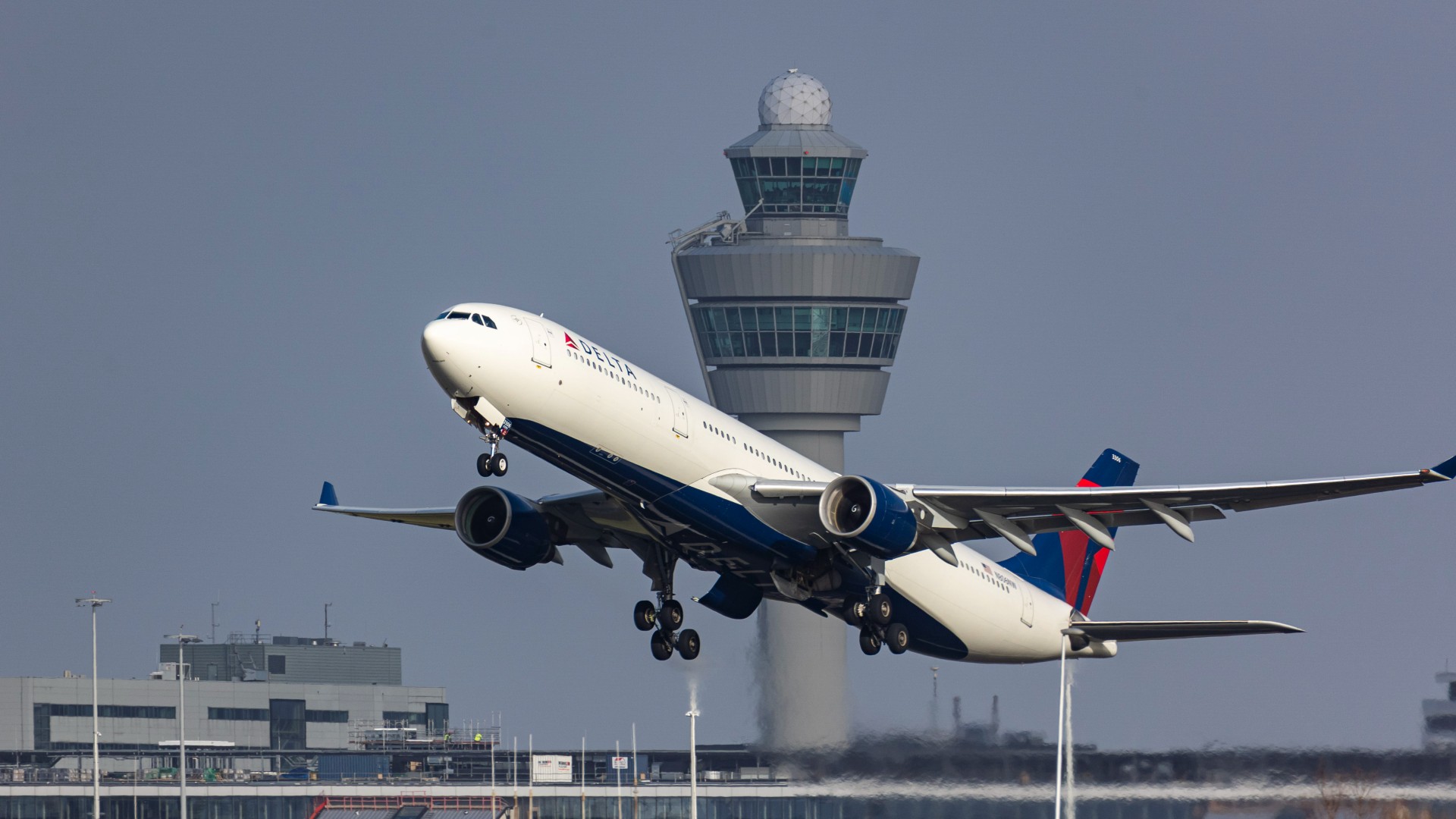How AI can — and cannot — be used to help air traffic controllers
Some in the industry say AI will never replace humans, but can still be a useful assistant


A free daily email with the biggest news stories of the day – and the best features from TheWeek.com
You are now subscribed
Your newsletter sign-up was successful
Artificial intelligence is permeating more and more aspects of everyday life, but there's one area where people may pause at the thought of automation: using AI to help land planes. There are signs, though, that artificial intelligence may be coming, at least in part, to air traffic control towers.
The debate over AI in the aviation industry has come up as air traffic controllers face a continuing crisis. The career path has long been plagued by staffing issues, constant fatigue and long hours. An investigation by The New York Times last year found that controllers often come into work drunk and fall asleep on the job, leading to an "exhausted and demoralized workforce that is increasingly prone to making dangerous mistakes."
So it should come as no surprise that the industry is trying to find alternatives — or at least a way to rectify the crisis. But while AI may be a useful tool in some workplaces, does it belong in the skies? Or would it just cause a whole new set of problems?
The Week
Escape your echo chamber. Get the facts behind the news, plus analysis from multiple perspectives.

Sign up for The Week's Free Newsletters
From our morning news briefing to a weekly Good News Newsletter, get the best of The Week delivered directly to your inbox.
From our morning news briefing to a weekly Good News Newsletter, get the best of The Week delivered directly to your inbox.
How is AI currently being used in air traffic control towers?
Artificial intelligence is not telling planes when to take off and land — at least not for now. However, some organizations have begun looking into ways in which AI can be used to supplement data that air traffic controllers need to manage their runways.
Engineers at Arizona State University have used AI to "create a novel air traffic management software platform, which will be adopted for domestic air travel in the upcoming decade," the university said. The software, developed by Professor Longming Liu, "integrates artificial intelligence as well as radar and GPS signaling," said the university. "AI has been boosting everywhere, so we thought that’s about the right time to use AI mission learning to help us better understand air traffic safety to automate the process [and] make sure the system becomes even safer," Liu said to CBS-5 Phoenix.
Liu's software takes the weather into account, and trying to predict weather-related delays is something other AI companies are also working on. Boston-based Tomorrow.io "recently received a $19 million grant from the U.S. Air Force to launch more than 20 weather satellites," The New York Times said. These satellites "provide meteorological reporting over the whole globe, covering some areas that are not currently monitored." Currently, pilots manually radio in encounters with bad weather to warn other planes, but this "new fleet of satellites could help warn them earlier."
Researchers across the pond have also "produced a computer model of air traffic control in which all flight movements are directed by artificial intelligence rather than human beings," the Financial Times said. Called Project Bluebird, it has resulted in humans and AI "now beginning to work together to process aircraft within the project's digital twin of U.K. airspace."
A free daily email with the biggest news stories of the day – and the best features from TheWeek.com
Will AI ever replace human air traffic controllers?
The short answer — probably not. While Project Bluebird is making progress, researchers "emphasized that the AI system would have no authority to actually determine aircraft routing," Richard Cannon, the project leader, said to the Financial Times. In every air traffic control tower in the world, "all decisions are made by a human," Cannon said. "We are not saying that we want to automate the skies over the U.K. but we are pushing the envelope as far as we safely can."
AI can perform "only those functions that are planned for during its design and so can't modify standard procedures," Amy Pritchett, an aerospace engineering professor at Penn State University, said for The Conversation. She gave the example of a plane's cockpit indicators being unable to confirm whether landing gear is extended. In this instance, the plane must fly low over the air traffic controller tower, so the gear can be assessed visually — something AI can't do. "As the scenario above illustrates, humans are likely to remain a necessary central component of air traffic control for a long time to come," Pritchett said. In aviation, every aspect "must meet the highest levels of safety, but not everything goes according to plan."
AI's introduction into air traffic control "cannot be done overnight," Sheldon H. Jacobson said for The Hill. However, if just "5% of air traffic controller activities can be assigned to and managed by AI systems" in a safe manner, "this could create an environment that requires fewer air traffic controllers for the same volume of flights."
Justin Klawans has worked as a staff writer at The Week since 2022. He began his career covering local news before joining Newsweek as a breaking news reporter, where he wrote about politics, national and global affairs, business, crime, sports, film, television and other news. Justin has also freelanced for outlets including Collider and United Press International.
